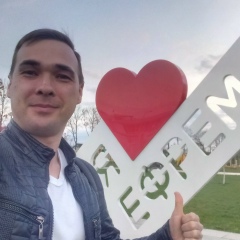Преподаю социологам и мучаюсь. Вот, например, зачем нужно нижеуказанное:
“Наибольший (наименьший) элемент множества. Верхняя (нижняя) грань множества. Теорема о существовании верхней (нижней) грани. Понятие окрестности
действительного числа (точки) и окрестности с выколотым центром. Понятие предельной точки точечного множества на числовой прямой. Внутренние и граничные точки. Односторонние и двусторонние пределы. Бесконечно малые (бесконечно большие) величины и их связь с пределами функций. Функции одной переменной, не имеющие предела в точке и на бесконечности. Свойства операции предельного перехода. Предельный переход в сложной функции. Первый и второй замечательные пределы. Второй замечательный предел в задаче о начислении процентов. Односторонняя непрерывность. Точки разрыва и их классификация. Арифметические операции над непрерывными функциями. Непрерывность основных элементарных функций. Непрерывность сложной функции. Верхняя (нижняя) грань, глобальный максимум (минимум) функции в ее области определения. Теоремы Вейерштрасса о непрерывной на отрезке функции. Теорема о существовании и непрерывности обратной функции у строго монотонной функции, непрерывной на отрезке. Равномерная непрерывность функции и теорема Кантора.“
Вообще, видно что ВСЮ математику впихнули в один курс. Я могу многое понятно объяснить — но не в таком объёме. Это надо неизбежно рассказывать всё без доказательств. Я рассказываю доказательства — не почти всегда формально не правильные, но наглядные и убеждающие. Далее, непонятно как спрашивать потом — студенты должны просто запомнить формулировки? А зачем? Может, они лучше поймут что-нибудь?
Кажется, такова и программа по математике всех непрофильных вузов. Бессмысленная и беспощадная — студенты, конечно, не могут это освоить, не хотят, и оно им и не надо.
Скажите мне, какая математика нужна социологам? Я хочу выкинуть нафиг классификации точек разрыва и односторонние пределы (кому это вообще надо?), равномерные непрерывности (социологам? серьёзно?) и много чего ещё.
Пока начитанное выглядит так, кстати: http://mathcenter.spb.ru/nikaan/teach/sociology.pdf http://mathcenter.spb.ru/nikaan/teach/sociologyp.pdf
У меня заявлены скромные цели, всё что надо для них, я уже рассказал, теперь неясно как продолжать=)
Принимаются любые соображения о том как (и зачем) надо преподавать математику нематематикам ( в тч социологам).
“Наибольший (наименьший) элемент множества. Верхняя (нижняя) грань множества. Теорема о существовании верхней (нижней) грани. Понятие окрестности
действительного числа (точки) и окрестности с выколотым центром. Понятие предельной точки точечного множества на числовой прямой. Внутренние и граничные точки. Односторонние и двусторонние пределы. Бесконечно малые (бесконечно большие) величины и их связь с пределами функций. Функции одной переменной, не имеющие предела в точке и на бесконечности. Свойства операции предельного перехода. Предельный переход в сложной функции. Первый и второй замечательные пределы. Второй замечательный предел в задаче о начислении процентов. Односторонняя непрерывность. Точки разрыва и их классификация. Арифметические операции над непрерывными функциями. Непрерывность основных элементарных функций. Непрерывность сложной функции. Верхняя (нижняя) грань, глобальный максимум (минимум) функции в ее области определения. Теоремы Вейерштрасса о непрерывной на отрезке функции. Теорема о существовании и непрерывности обратной функции у строго монотонной функции, непрерывной на отрезке. Равномерная непрерывность функции и теорема Кантора.“
Вообще, видно что ВСЮ математику впихнули в один курс. Я могу многое понятно объяснить — но не в таком объёме. Это надо неизбежно рассказывать всё без доказательств. Я рассказываю доказательства — не почти всегда формально не правильные, но наглядные и убеждающие. Далее, непонятно как спрашивать потом — студенты должны просто запомнить формулировки? А зачем? Может, они лучше поймут что-нибудь?
Кажется, такова и программа по математике всех непрофильных вузов. Бессмысленная и беспощадная — студенты, конечно, не могут это освоить, не хотят, и оно им и не надо.
Скажите мне, какая математика нужна социологам? Я хочу выкинуть нафиг классификации точек разрыва и односторонние пределы (кому это вообще надо?), равномерные непрерывности (социологам? серьёзно?) и много чего ещё.
Пока начитанное выглядит так, кстати: http://mathcenter.spb.ru/nikaan/teach/sociology.pdf http://mathcenter.spb.ru/nikaan/teach/sociologyp.pdf
У меня заявлены скромные цели, всё что надо для них, я уже рассказал, теперь неясно как продолжать=)
Принимаются любые соображения о том как (и зачем) надо преподавать математику нематематикам ( в тч социологам).
I teach sociologists and suffer. Here, for example, why you need the following:
“The largest (smallest) element of the set. The upper (lower) side of the set. The theorem on the existence of the upper (lower) face. Notion of neighborhood
a real number (point) and a neighborhood with a punctured center. The concept of the limit point of a point set on a number line. Internal and boundary points. Unilateral and bilateral limits. Infinitely small (infinitely large) quantities and their connection with the limits of functions. Functions of one variable that have no limit at a point and at infinity. Properties of the transition operation. Limit transition in a complex function. The first and second wonderful limits. The second remarkable limit in the problem of interest calculation. Unilateral continuity. Break points and their classification. Arithmetic operations on continuous functions. Continuity of basic elementary functions. Continuity of a complex function. The upper (lower) face, the global maximum (minimum) of the function in its domain. Weierstrass theorems on a continuous function on an interval. The theorem on the existence and continuity of the inverse function of a strictly monotone function that is continuous on a segment. Uniform continuity of function and Cantor's theorem. “
In general, it is clear that ALL mathematics pushed into one course. I can explain a lot of things - but not in such a volume. It is necessary to inevitably tell everything without evidence. I tell the evidence - not almost always not formally correct, but visual and persuasive. Further, it is not clear how to ask later - should students just remember the wording? What for? Maybe they better understand something?
It seems that this is the program in mathematics of all non-core universities. Senseless and merciless - students, of course, cannot master it, do not want it, and they don’t need it.
Tell me, what kind of mathematics do sociologists need? I want to throw out the classification of break points and one-sided limits (who needs it at all?), Uniform continuity (to sociologists? Seriously?) And much more.
So far the well-read looks like this, by the way: http://mathcenter.spb.ru/nikaan/teach/sociology.pdf http://mathcenter.spb.ru/nikaan/teach/sociologyp.pdf
I have stated modest goals, everything I need for them, I have already told, it is now unclear how to continue =)
Any consideration of how (and why) it is necessary to teach mathematics to non-mathematicians (including sociologists) is accepted.
“The largest (smallest) element of the set. The upper (lower) side of the set. The theorem on the existence of the upper (lower) face. Notion of neighborhood
a real number (point) and a neighborhood with a punctured center. The concept of the limit point of a point set on a number line. Internal and boundary points. Unilateral and bilateral limits. Infinitely small (infinitely large) quantities and their connection with the limits of functions. Functions of one variable that have no limit at a point and at infinity. Properties of the transition operation. Limit transition in a complex function. The first and second wonderful limits. The second remarkable limit in the problem of interest calculation. Unilateral continuity. Break points and their classification. Arithmetic operations on continuous functions. Continuity of basic elementary functions. Continuity of a complex function. The upper (lower) face, the global maximum (minimum) of the function in its domain. Weierstrass theorems on a continuous function on an interval. The theorem on the existence and continuity of the inverse function of a strictly monotone function that is continuous on a segment. Uniform continuity of function and Cantor's theorem. “
In general, it is clear that ALL mathematics pushed into one course. I can explain a lot of things - but not in such a volume. It is necessary to inevitably tell everything without evidence. I tell the evidence - not almost always not formally correct, but visual and persuasive. Further, it is not clear how to ask later - should students just remember the wording? What for? Maybe they better understand something?
It seems that this is the program in mathematics of all non-core universities. Senseless and merciless - students, of course, cannot master it, do not want it, and they don’t need it.
Tell me, what kind of mathematics do sociologists need? I want to throw out the classification of break points and one-sided limits (who needs it at all?), Uniform continuity (to sociologists? Seriously?) And much more.
So far the well-read looks like this, by the way: http://mathcenter.spb.ru/nikaan/teach/sociology.pdf http://mathcenter.spb.ru/nikaan/teach/sociologyp.pdf
I have stated modest goals, everything I need for them, I have already told, it is now unclear how to continue =)
Any consideration of how (and why) it is necessary to teach mathematics to non-mathematicians (including sociologists) is accepted.
У записи 9 лайков,
0 репостов,
636 просмотров.
0 репостов,
636 просмотров.
Эту запись оставил(а) на своей стене Никита Калинин





























